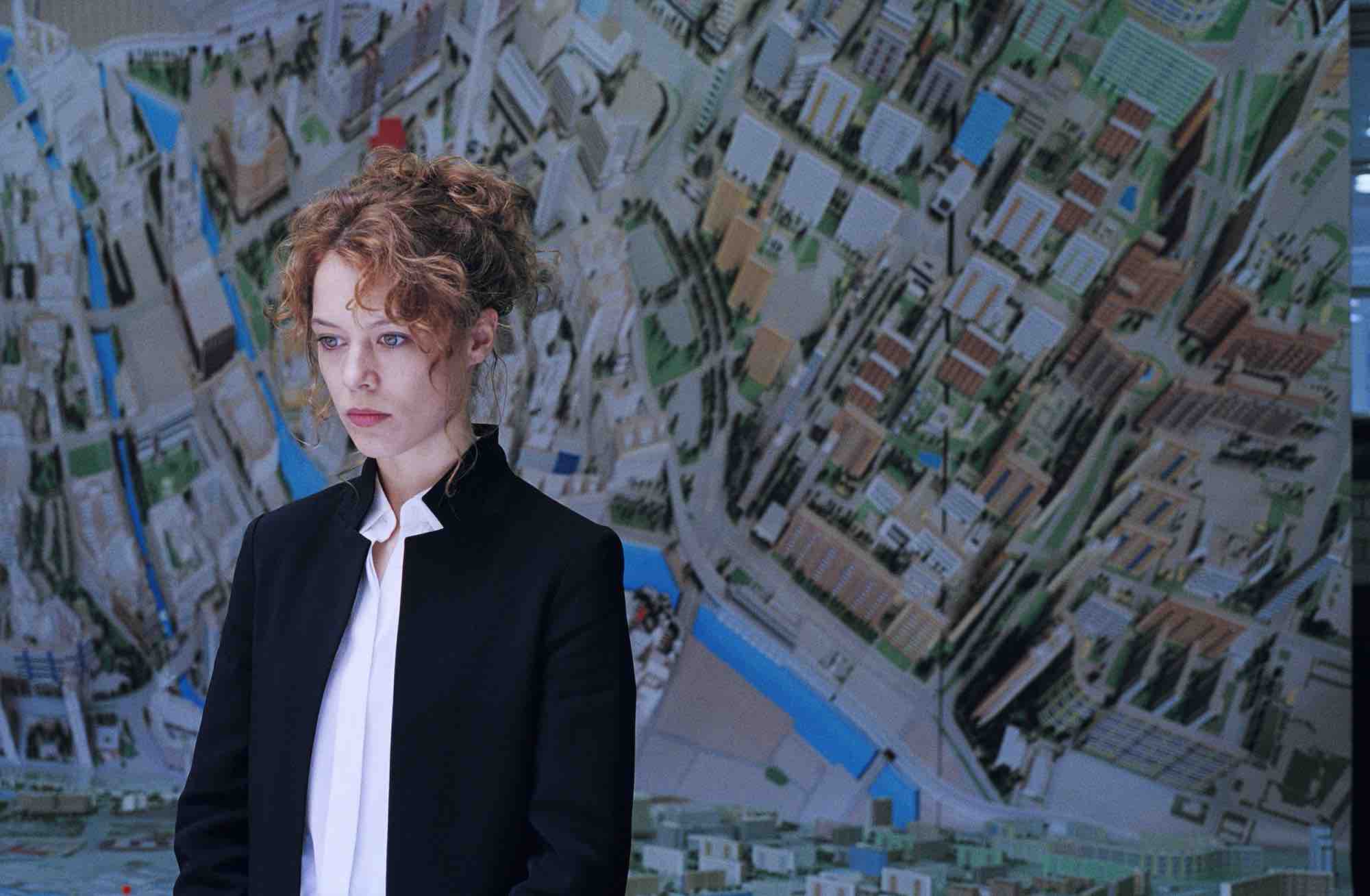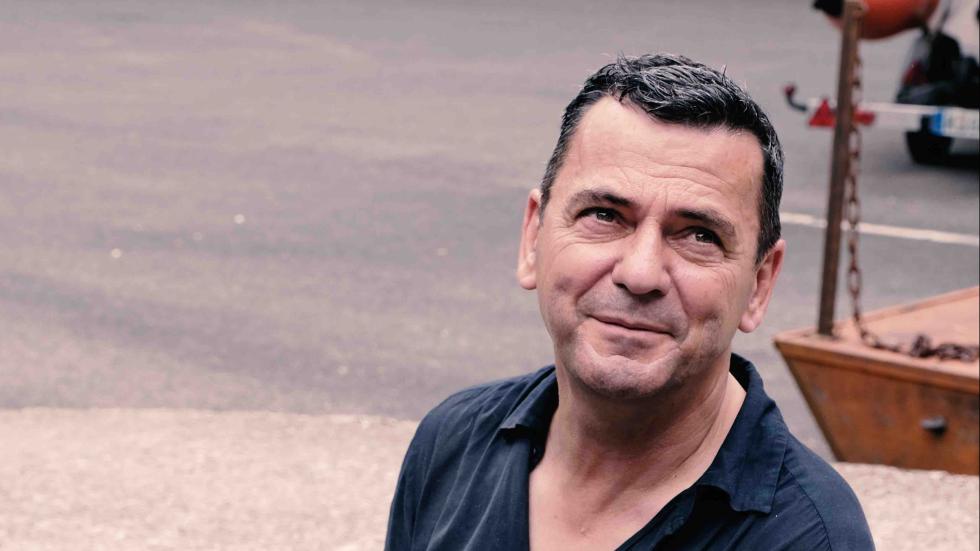His cinema is like no other. There may be atmospheres, themes, plots, that the spectator will find familiar, but reinvention is a recurrent theme in the work of German filmmaker Christian Petzold (Hilden, North Rhine-Westphalia, 1960), who tackles genres such as melodrama, spy thrillers and noir in his own way. His films are loyal to his own imagination and to the imprint that film, literature and academic knowledge have left on him. In this sense, the director often claims to be a filmmaker because of his reading of The Cinema According to Hitchcock, written by François Truffaut, and always recalls the figure of the late Harun Farocki, practically a mentor to him, his teacher at the German Film and Television Academy in Berlin (DFFB), and his collaborator throughout most of his career.
Probably the most significant figure at the Berliner Schule, the school of filmmakers committed to reality and history, considered to be the New Wave of German cinema (to which Angela Schanelec and Thomas Arslan also belong to, finding in a second generation, Valeska Grisebach, Ulrich Köhler or Maren Ade), Christian Petzold has a successful career as a director: winning a Silver Bear at the Berlin Film Festival, he has shot nine feature films and a handful of television works. He has shown an unusual willingness to bring his films together: his Ghost Trilogy, for example, includes his debut film, Die innere Sicherheit (2000), Gespenster (2005) and Yella (2007). His most famous films constitute the Trilogy about love in times of repressive systems: Barbara (2012), Phoenix (2014) and Transit (2018). The SEFF is now releasing her latest feature film, Ondina, with which he is launching a new trilogy, having been to the Berlinale, winning the Fipresci Award as well as the Silver Bear for Best Actress for Paula Beer.

We dive among the many interviews granted by Christian Petzold during his 20-year career to extract a handful of quotes that help us better understand his approach to cinema:
GERMANY AND THE PAST
" Seems that it is never a good time to look back, to portray the past, to touch on our recent history. When I filmed Die innere Sicherheit, which was about the Red Army terrorists, many people told me that it was a dead matter, that it didn't appeal to anyone. Then I did Yella, which talked about financial capitalism, and half a year later the system went bankrupt. So I don't think it's good to think about whether or not a film comes at the right time. Sometimes I think that German cinema seems condemned to making films about Nazis or the Stasi, but at the same time I know that Germans do not like their history and do not want to reflect it. So the cinema tries to maintain an archaeological instinct to explain what happened, without fear of delving into their traumas.
HIS TRILOGIES
"When I make films I usually think in terms of trilogies. When I prepare a film I always think about the next two that I'm going to make. Harun Farocki always advised me to think about shooting trilogies to have something to work on, to work, to work... Like in the 40s and 50s, when filmmakers shot one film after another and used to have quite substantial links between them. My last trilogy, for example, which included Barbara, Phoenix and Transit, depicted love stories in oppressive systems: Barbara was the love of a woman behind the Iron Curtain in communist Germany. Phoenix placed a woman in National Socialism. And Transit had two protagonists running away from France at war. Now, with Ondina, I'm starting another trilogy of German stories that focuses on the elements: water is the protagonist, and in my next film, fire will be the protagonist. I will be filming 'The Red Sky' once the pandemic has disappeared, because it is a homosexual love story that needs kisses, bodies, and so on. I can't do it with masks, so I'll wait until there's a vaccine for the COVID”.
HARUN FAROCKI: MENTOR, COLLABORATOR AND FRIEND
"Initially we had a teacher-student connection, but we were both on the same football team in Berlin, and when two guys share a naked shower, the teacher-student relationship no longer works, it is transformed. So we started a friendship that would end up getting very deep indeed. In the early 90s, he went to Berkeley as a teacher, and I went to visit him for four weeks. It was there where we started our collaboration in an intense way, writing the script of Die innere Sicherheit. Then the others would follow, until his death in 2014. I remember that we worked while cooking or during long walks in Berlin, Berkeley and other cities".
WRITING METHODOLOGY
"I don't like writing a script with images in my head, I have to find those images in reality. I am passionate about finding locations, and doing it alone, not with others: after writing the script, I go three, four, five days by bike and always without a camera. I never photograph the locations. I just look around, smoke a cigarette. Then I go back to the desk and rewrite the script because I already have the impression of a world that does exist and not just one in my mind.
SHOOTING METHODOLOGY
"I usually do very few takes during the shoot: I usually do long tests and only one take, although sometimes we have to repeat them because of technical problems. I do this so that the actors don't get into the routine of their performance and are not tempted to hide their energy. That's how they give it all. Since I shot my first feature film, Die innere Sicherheit, I have maintained the same working structure: the actors arrive on the set at 8 a.m., the only people there are them, me and someone with coffee. We start rehearsing what we want to achieve that day, and it takes us three or four hours to find the choreography. During this time, the producers want to commit suicide because it seems that we don't do anything. But we find the choreography, and then we have the director of photography and the sound and lighting departments arrive, and we show them what we have done. When the actors put on their make-up, the director of photography, the editor and I talk about how we can film it, and it doesn't take more than half an hour to make a storyboard. We write it, we light it, we shoot one take... and at four o'clock we can go home.
HIS REFERENCES
"I found my way to the cinema by reading Truffaut's book of interviews with Hitchcock, a huge discovery that made me sensitive and trapped me for life. As a spectator, the first film I fell in love with was The Jungle Book. I saw it when I was 7 years old and it impressed me greatly because it is full of colour and choreography. Actually, it has something to do with Transit: there is also a child without parents and alone in the plot. I think that resonated deeply with me. Something similar happened to me with The Carnival of Souls, which I had seen three or four times in the 1980s: when I shot Yella, I already knew that they both had something to do with each other, but then I was impressed by how much they feed from each other when someone made a film essay comparing the two films. It is very clear to me that cinema has a lot to do with the subconscious. Also... I am German, so I was tutored by the films of Fritz Lang and Murnau, also by Billy Wilder, Robert Siodmak, Edgar G. Ulmer, those directors who had to escape Europe because of fascism, and who came to Hollywood to create something new from that German cinematic light of the 1920s. And, of course, there are Wenders and Fassbinder: when I was 16 or 17, which is when I started going to the cinema, I was looking for my own cultural imagination and I found it in them; I think that Barbara has a lot perhaps of Wenders in the landscapes, and Phoenix has more elements of Fassbinder, there in the search for tradition. In any case, making a film means to do a search for your own cinematic identity".







